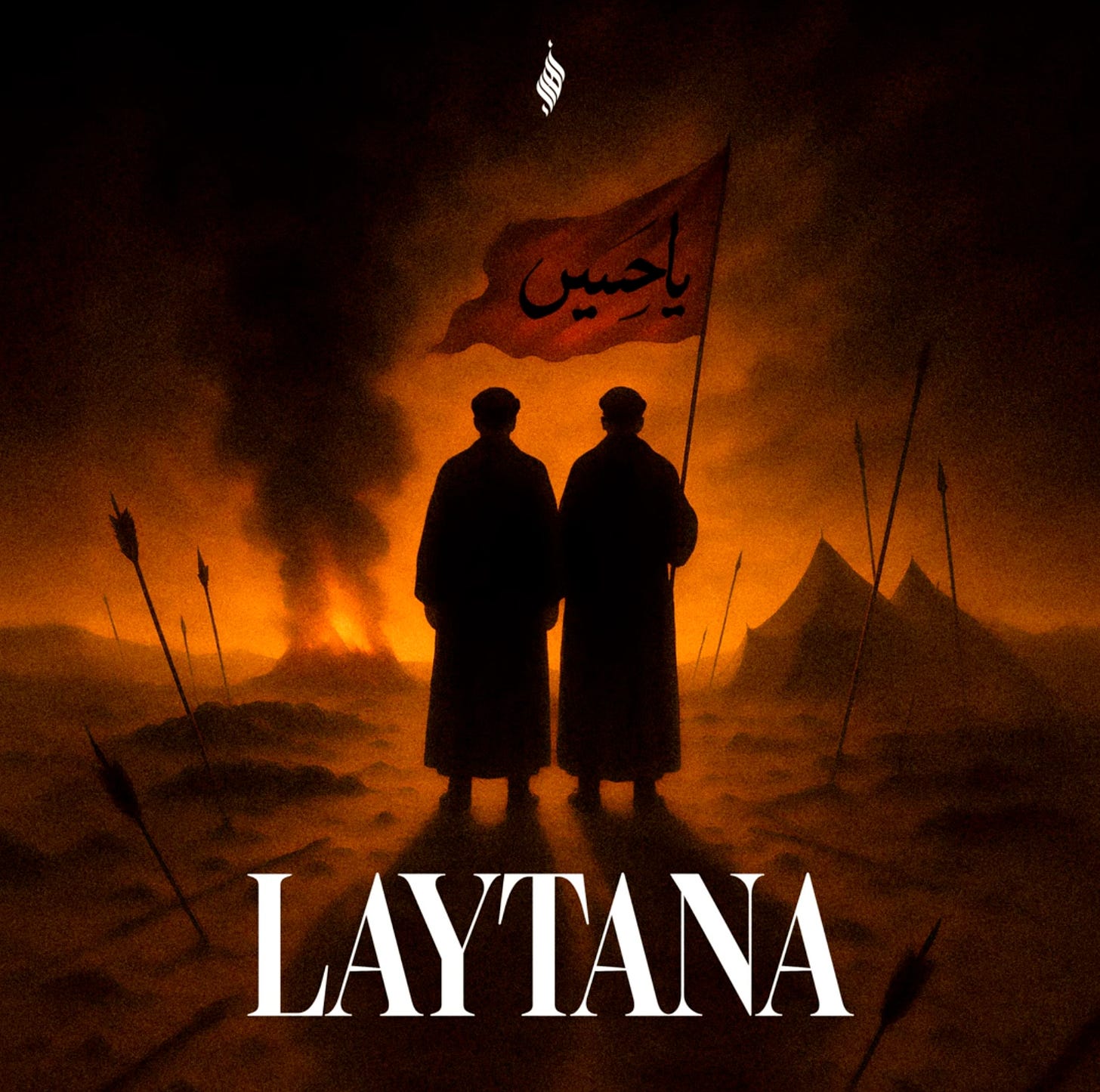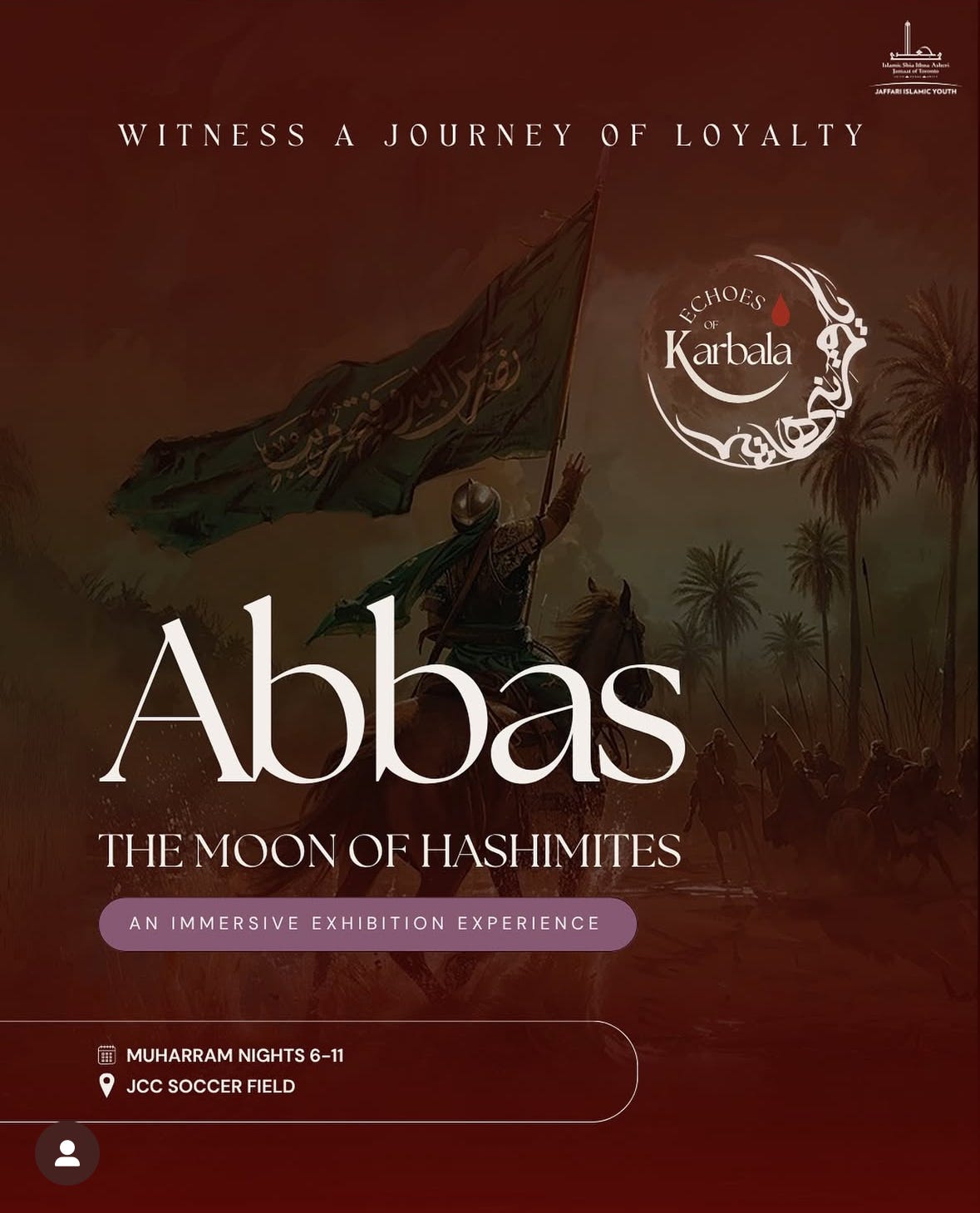This image links to a popular nawha, or eulogy, by two Canadian poets. ‘Laytuna’ translates to ‘longing’ and signifies the yearning of Muslims to be with Husayn.
Few religious traditions begin the new year with deep sorrow instead of celebration.
While Rosh Hashanah and the Liturgical New Year in Eastern Orthodox Christianity invite reflection and humility, they are more solemn than sorrowful. In Hinduism and Zoroastrianism, the new year is preceded by rituals that honour ancestors or acknowledge past struggles — but these, too, are framed within cycles of renewal and joy.
By contrast, Shi’a Islam enters the new year in mourning. The first ten days of Muharram, and the day of Ashura in particular, are marked not by festivity but by grief — grief rooted in the memory of Imam Husayn’s martyrdom in Karbala, Iraq.
It is a grief that transforms into moral clarity, collective resistance, and spiritual resolve. In a world eager to forget its injustices, this annual act of remembrance stands out as a profound declaration: some wounds are too sacred to silence.
In Shi’a Islam, the first two months of the year are devoted to deep mourning for the seventh-century martyrdom of Imam Husayn, who was the Prophet Muhammad’s grandson, at the hands of the corrupt Umayyad caliphate.
Weddings and festive gatherings are replaced with nightly recitations of elegies (marsiya), sermons on injustice and resistance, and public processions. This year, a group of youth at a Toronto mosque created a multi-sensory, immersive exhibition that brought the tragedy of Karbala to life across six tents. Each space combined evocative visuals with reflective narration, inviting visitors to engage more deeply with the enduring values of justice, sacrifice, and moral courage.
Shi’a scholars use this month to remind us to reset. They retell the Battle of Karbala, vividly painting a picture of that critical moment in early Islamic history where Husayn chose death over compromising justice and integrity. For more background on the battle itself, visit this article I wrote last year.
Muslims outside the Shi’a tradition, who make up the majority of the global Muslim population, have at times criticized this intense devotion to Husayn. “Why cry for someone in the seventh-century figure? Why can’t you just move on?” But resistance is a moral reckoning—an insistence on telling the truth about one of the most painful chapters in Muslim history, where Muslims killed their own in cold blood, where the Prophet’s own family was left to die in the desert.
To remember is to resist.
Just as many cannot move on from Palestine - not because they’re stuck in the past but because the injustice continues - Shi’as return year after year to affirm that some wounds must not be buried. Their refusal to forget becomes an act of defiance, dignity and faith.
This year, I want to mark Muharram by sharing some universal nuggets of wisdom from therapist and author Marzia Hassan. Hassan describes her work as influenced by faith, positive psychology, neuroscience, and mindfulness — a blend of ancient wisdom and modern, evidence-based techniques. She is delivering daily lectures at a mosque north of Toronto over the first ten days of Muharram.
Below is an excerpt of her lecture on the first day of the month:
“To be honest, this - Resistance and Resilience - was not my first choice of a topic. Those of you who know me know I'm much more comfortable talking about poetry than politics, about being Zen than Zionism. I was never a fan of history. I'm not great at geography. What I do know is relationships, self, growth, all those kinds of things, right?
Some of you may have seen a previous poster [for this series of talks] which was very different. But then what happened was… I couldn’t sleep. I would prepare and prepare, and it just wasn't making sense. And what kept on coming to mind was that I'm telling people in a sense to be okay, to work on their happiness, on their own well being. But one of the things that kept on coming to mind is that to be well adjusted in a sick society is not a measure of health.
So I decided to change the topic last minute to Resilience and Resistance.
Imam Husayn’s purpose, remember, was not about the self; it was to reform society; to enjoin good; to stop what was not fair.
But there were three kinds of people the Imam was facing, among those that claimed to be by his side: Those who were unaware of what was happening, those that didn't care, and those who knew and cared… but their lives were so comfortable. They had so much to lose by standing up that they just didn't want [to say anything]. And I think about that sometimes after listening to the tragedy of Karbala - I sit in my very comfortable car, go back to my very comfortable house and go back to my very comfortable life.
Now, let's see if this sounds familiar.
Which camp are we in? Which camp am I in? Which camp are you in? Do we not know? Really, can we use that as an excuse today? Do we not care? Do we have so much to lose?
I remember leaving my house recently to go to a mall. I usually have a Palestinian bracelet that I wear all the time to remind me of resistance. And I remember becoming really uncomfortable because I wanted to kind of hide it under my skin. Such a little thing. But it showed my mindset. It showed my fear of being called out. The fear of standing up was overtaking me. So like the people that Imam Husayn was surrounded by, we are either really distracted, perhaps really overwhelmed or…
I’d like to read to you something that’s been making the rounds on social media. You know, sometimes when we are on the inside, like if you're a fish swimming in the ocean, it can be kind of hard to see the water. But when you are outside, it's much easier to see what is happening. And so this poem is by a Sunni writer [unknown] about the unshakable resilience of the Shi’a, including those living today in Iran, Iraq and Lebanon:
I have often wondered: what is it that gives our Shi’a brethren such unshakeable resilience — on battlefields, in exile, under sanctions, siege, and systemic suppression?
And the answer which came to my mind is this: they have made peace with grief.
For over 1,300 years, they haven’t just remembered Karbala — they have internalized it. They carry it in their rituals, their psyche, and even in their silences. And in doing so, they have transformed grief into a form of endurance — a shield that no regime or empire has been able to crack.
I was young when I first sat through a majlis — not fully understanding the rhythm of the lament, the slow weeping of the crowd, or why adults would strike their chests for a man who was martyred centuries ago in a desert far away.
But over time, I understood.
Husayn was not mourned for dying. He was mourned for refusing to bow.
For choosing dignity over survival.
For standing alone when every worldly logic would have advised him to stay silent.
And so, every year, Shi’as all over the world gather not to revisit trauma, but to reaffirm truth. They don’t cry because they are weak — they cry because they remember. And because remembrance is the first form of resistance.
Across history, they’ve lived in the shadows of empires — often distrusted, often hunted, often silenced. From Parachinar to Quetta, Baghdad to Yemen — wherever power turned brutal, the Shi’a were marked for their stubborn insistence on moral clarity.
And yet — they remained.
They built cultures of poetry and protest, of pain and perseverance. They turned grief into an inheritance — not of helplessness, but of meaning. A reminder that loss is not the end of the story.
In fact, for the Shi’a Muslims— it’s the beginning.
So when people ask — how do they still rise after being betrayed, bombed, exiled, and erased — I think back to Karbala.
What can you take from a people who have already buried their dead with their own hands and still whispered ‘Labbayk Ya Husayn’? [Here I am, Oh Husayn]
What do you threaten them with — death?
They’ve already walked that path, century after century — not with pride, but with a quiet, unwavering dignity.
In a world that worships power and mocks sacrifice, they still follow a man who chose to die thirsty so the future could drink from the well of truth.
And maybe that’s why they remain unbending. Because their faith is not built on conquest — it is built on conscience.
Because they’ve inherited not palaces, but a principle:
That even in loss, one must never kneel.
And that is why — whether they stand before kings or tanks, empires or sanctions — the devotees of the Prophet’s family will not be moved.
They are not strangers to grief.
They are its students.
And its torchbearers.”
-
As the world reels from injustice after injustice, the story of Karbala offers more than historical memory — it offers a spiritual roadmap.
A roadmap that tells us grief is not the end. It’s where resistance begins.





In the midst of grief and self reckoning that comes with the beginning of every Muharram, thank you for collating the voices that respond to resistance through grief. How beautifully portrayed, that the times we live in is so eager to forget the injustices occurring. Its as if by increasing distractions they are able to swing attention like a pendulum, of now you see it and now you don't. Many times one wonders, is this what a civilized world looks like? Where truth is silenced, manipulated and distorted? Where organizations meant to serve humanity are busy talking and talking with no power to put anything into action? It seems that humanity has been engulfed with hypocrisy that is choking, making us morally bankrupt. Yet its voices like yours and a few others that remind, the truth will prevail. It is these reminders that give voice to the voiceless and bring renewed hope of the message of Al Hussain and his sister Zainab never to succumb to injustices, never to bow down to humiliation (Hay haath minna dhilla) and never to let the voices of truth be buried unheard. Keep writing Shenaz. Its the power of the pen that will shape our narratives to be documented in history.
Shahnaaz Alidina